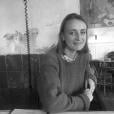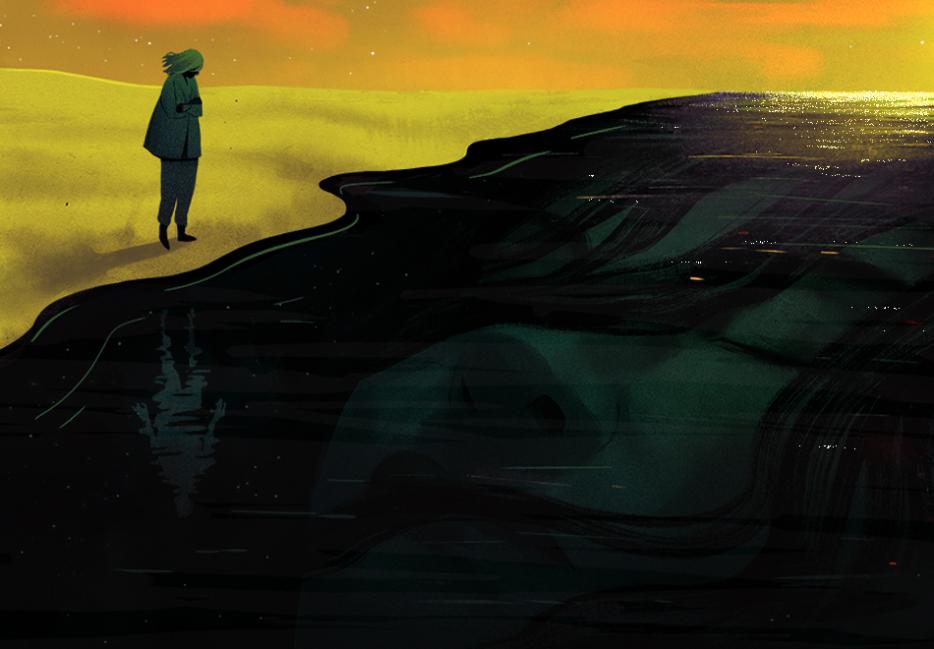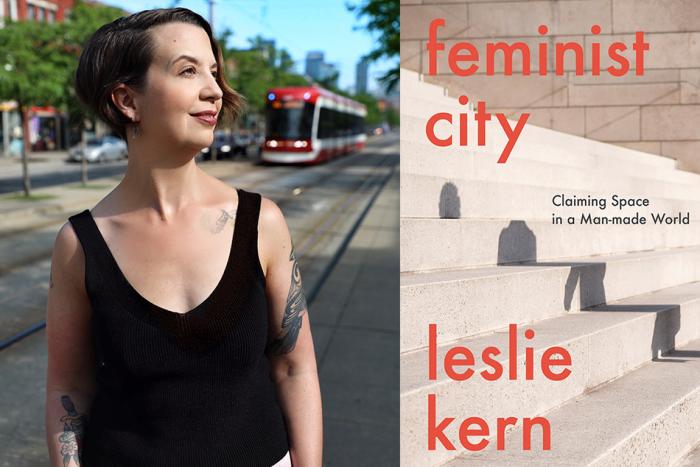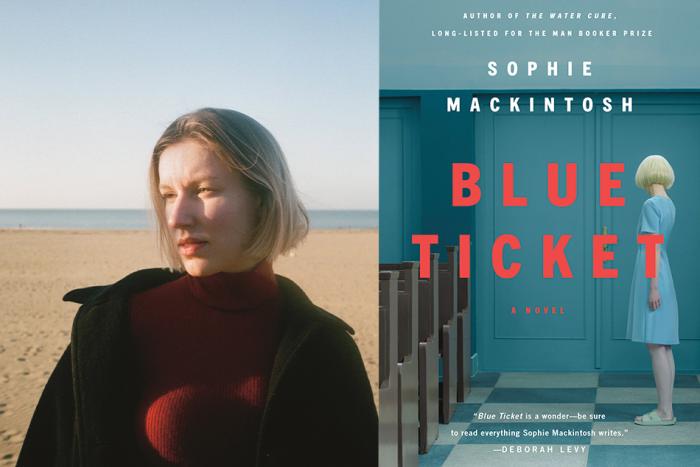Last winter, I took a train to Höchst im Odenwald, a small town an hour south of Frankfurt. Clusters of white rooftops poked above the trees, spindly pines scraping the pale blue sky. The air smelled of chimney smoke. Forests gave way to wide pastures, where cows and sheep grazed and starlings swooped low in search of seeds. Elke Hilbert picked me up at the train station in a wheezing stick shift and told me families took summertime boat trips on the nearby Main River. Her family took a boat there once, when her son Max was a child. She thinks about that trip often.
We took a roundabout route to Elke’s home. She showed me Max’s primary school, the traveler’s hostel where he worked as a teenager, the soccer pitch where he used to practice. Later, in the house, I sat at the kitchen table, and Elke brought me coffee and a tray of heart-shaped muffins she’d baked for Valentine’s Day. A neighbor rang the doorbell and gave Elke a basket of black and white cookies. “Please, eat them,” Elke said, pushing the treats toward me.
I pulled out my recorder, and for the next five hours we talked about Max. He died in 2015 at nineteen, an apparent drowning in a Galician fishing village. When I visited Elke, he would have been twenty-three. My age.
I learned about Max after I walked the Camino de Santiago to Fisterra, a village on Galicia’s Costa da Morte. Fisterra means End of the Earth in Gallego, the local language. The landscape there is austere. Rugged cliffs cut into choppy water. During the wintertime, waves can reach up to forty feet high. The regional delicacy is a barnacle called percebe, and percebeiros risk their lives scrambling down rocks to collect them. Residents told me Fisterra saw a handful of drownings a year—most often pilgrims who underestimated the power of the current, but sometimes fishermen and percebeiros, too. The rocky coast was also notorious for shipwrecks. With any tragedy on the sea, the first to arrive on the scene were fishermen, the people who knew the coast best. Later, a local poet would tell me, “We know death well here.”
***
After I left Galicia, I spent a few hours browsing the Internet for reports of drownings in Fisterra. One webpage provided a list of people who died walking the Camino each year—heatstroke, heart attack, a twenty-six-year-old run over by a train. Further searching led me to a news article about a young German man named Max who had gone swimming in frigid water, and the fisherman who had spent weeks searching for him when he disappeared. I googled images of Max, and photos popped up: Bright blonde hair, piercing blue eyes. More searching got me his mother’s email address, and a month later, Elke responded to my interview request.
“I think that speaking with you about my beloved son Max could be a kind of ‘psychotherapy’ for me, an effective medicine for both my soul and my heart,” she wrote.
We spoke by Skype in October of 2018. I took the call in my pajamas. It was two a.m. in California, where I was visiting my family, and I spoke quietly from a dim corner of the living room, wary of waking my parents. Elke had white-blonde hair and blue eyes like her son, and she apologized repeatedly for her English, though it was near-perfect. As we talked, she told me about Max’s penchant for philosophy and his lust for traveling. She was more reticent to speak of his mental health problems. She mentioned a “psychotic break” and marijuana use but didn’t want to say more.
***
People usually have a personal reason for walking the Camino de Santiago, a ready-made answer to the question, “Why are you walking?” Some people walk because they have quit their jobs; others quit their jobs to walk. One man I met while walking had just broken up with a long-time girlfriend. The summer I walked, I walked because I didn’t want to do anything else. I wanted to think of nothing but my surroundings. I wanted to be in motion.
Max’s friend Jenny Gast told me he walked because he felt stifled at home. He’d lived there the year after graduating high school, uncertain about his future. He’d excelled in school and considered studying philosophy or literature at university. But after he graduated, his sense of self and purpose began to deteriorate.
Sometimes, Jenny told me, Max would come over to her house. They would sip tea on the balcony and talk about the future, their families. His parents were strict, suspicious that his friends were bad influences. They didn’t know how to help him. During one of his examinations the year before, he felt his mind go blank and bolted from the classroom. After disappearing for several hours, he showed up at home, soaking wet, his cellphone damaged. He’d taken a train to a nearby town and stood in the river, contemplating drifting away with the current.
Just before he left for Spain, in April of 2015, Max and Jenny, who then lived in Munich, took a meandering drive through Höchst. Why don’t you move to Munich, where doctors could help you? Jenny asked. She thought it was a bad idea to walk the Camino de Santiago, given his mental health. But Max felt that nothing was helping: not the pills doctors made him take, not the time spent resting at home. He was stuck in his head. I need to do something with my body, he told her. I need to walk.
***
I visited Fisterra again in December. It rained every day, pounding rain whose roar blended with the crashing surf. The pilgrims were gone, the hotels shuttered, the only remaining people locals. The town was a dreary shell of its summer self. I met Guillermo Traba, a fisherman who had searched for Max and who claimed he could hold his breath underwater for fifteen minutes. When we met for coffee at a dim restaurant on the port, he told me the water was murky the day he started searching for Max. Shadows of algae on the sea floor had looked like ghostly bodies, rocking in the current.
Guillermo spent his days diving for razor shell clams and suddenly found himself leading the search for a missing German pilgrim, spending every morning swimming and scanning the water for clues. That search ended, two weeks later, with the discovery of a body floating in the sea.
***
This wasn’t the first time I had become obsessed with drowning. A few years before, I had spent a summer writing about deaths on the Kern River in central California, following a rescue team around the valley as they raced to save stranded swimmers and search for bodies. I saw the power and terror of water firsthand. Water could snatch a life away. Bodies sank, released gases, then floated. Professional divers were trained to recover corpses. They trawled the sea, sped down rivers in boats.
It was divers like this who had recovered the body of my friend Haley Rue when she drowned. She had fallen into a whirlpool the summer after our first year in college. We’d been backpacking in Europe—she in Austria, Hungary, and Germany, I in Spain and Portugal. We talked every day. I would send her messages from bars and cafés, recounting to her the day’s adventures and the interminable loneliness I felt while traveling from city to city. Once, I wrote her from a corner store in Ibiza. A few hours earlier, I had missed the last bus from the the north side of the island and walked twenty kilometers along the side of the highway, arriving back to my hostel just as night fell. You’re crazy, Haley wrote me, then asked how I was doing. She, in turn, would tell me about the quirky people she met in her hostels and her favorite foods from each city—schnitzel, chocolate cake, cherries.
One day in July the conversation stopped. That evening, I read about her death on Facebook. There was a post from a family friend. It said something about prayers, and a river, and Haley. The word drowned.
In the years after, I couldn’t stop imagining my friend’s death. I had a running list of questions. How long did it take for her to die? Had she been conscious? Did she know what was happening? Did she struggle? What was the last thing she saw—water or sky?
***
After I spoke to his mother, I started thinking about Max as though he were alive. As I wrote alone in my small bedroom, staring at the walls when I felt stuck, I would speak to Max. I’d sit in the grey morning light and throw my questions into the air—Why didn’t you go to Munich like Jenny asked? Why did you keep swimming when the water was so cold? His presence in my life was a constant.
I had just moved to Barcelona, my fifth city in two years. I had no friends, no sense of direction. I sort of just ended up here, I’d say when people asked—explanations are always too long. When I wasn’t sending story ideas to editors, I walked around the port of Barcelona and watched the boats come in and out, trying to keep my mind off my loneliness.
Writing about Max gave me purpose, a way to spend my days. I turned to his friends, his text messages, his diary, spoke with the last people who saw him alive.
Natalie Kapahnke, who had walked for a week with Max through Cantabria, wrote me an 1,800-word email. Max felt like a little brother, she wrote, “the little brother you look after and care for.” They walked with a group, exploring lighthouses along the coast and talking deep into the night. On one of their last evenings together, they made pizza and salad at a hostel. “Max told me that he understood that he has to change and that he misses his family,” she wrote. “Still, he knew that the Camino and the distance was the best for him at this moment.”
Asli Hanci, Max’s girlfriend at the time of his death, sent me a few of their last Facebook messages. The messages are quotidian updates, small windows into Max’s mind. In one, Max describes finishing forty kilometers in one day—his longest stretch of walking—and going to eat a quarter-pounder as a celebration. In another, he feels homesick and ambivalent about having left Höchst. He tells Asli to call his parents and let them know he’s fine. He sent his last message to Asli on May 28, arranging to meet her back in Frankfurt or Höchst once he finished walking. He did not mention he planned to go to Fisterra the following day.
Juan Mayan had been in Fisterra the day Max disappeared. That evening, while relaxing on the beach, Juan and his wife had seen a young man sitting nearby, smoking a cigarette and staring out to the water. After a while, the man left his backpack on shore and waded into the sea. He swam farther and farther until his body became a speck. When daylight began to fade, Juan and his wife left. The next morning, Juan took a stroll along the beach and saw the backpack untouched. Later, he would learn that though the sea had been calm on May 29, the water was frigid: twelve degrees Celsius—cold enough to cause a body to go into shock.
I got a coffee with Max’s friend Jakob. We sat on a terrace in a village north of Frankfurt, drinking in the late-afternoon sunlight. Jakob rolled a cigarette and told me that during high school, he and Max would walk through the forest. They’d sit under a peach tree, or climb a tall oak and lounge in the branches, talking.
Jakob still struggles with Max’s death. Did Max want to die? Did he have a psychotic break when he was alone on the beach? Jakob shrugged. It didn’t matter—nothing would change Max’s death. But he wanted to know everything. He wanted to go to Fisterra, see what Max saw. I told Jakob about Haley, how I wanted to know what she’d seen too.
As we talked, I thought about one of the first times I’d written about death, when I was a freshman in college and a student had killed himself. After we published the story in the student newspaper, I kept speaking with his friends, even though their quotes would never leave my notebook. It was nice, we thought, just to have someone to talk to, someone who would listen.
***
After a few hours at the table with Elke as she recounted the worst days of her life, I felt I owed her an explanation. Why did I want to write about her son? she asked.
I told her about Haley.
We had met in our first year of college and would have been roommates the following year. We were both from the West Coast and, that first college spring, had experienced a shapeless sense of loss. We missed home and who we had been at home, a world away from the pressure of academics and college social life. On a sunny April day, we skipped class and went to a park. As we were looking at the sky, Haley told me she wanted to move to the Grand Canyon. She liked how big it was, how it was so far away. What would you do there? I asked, and she was quiet for a minute. Maybe be a guide, she said. That sounds nice, I said. An escape. She smiled with her whole face. I like the way you talk, she said. That’s the only sentence I remember in her voice.
In July, when I was in Lisbon, Haley went to Innsbruck, Austria. She was in love with everything: the job, the food, the landscape, the people. In Innsbruck, Haley bought a carton of cherries and ate them, one by one, as she walked barefoot on the hot asphalt back to her hostel. In Innsbruck, Haley hiked up a mountain, ate strudel at the top, and tripped a few times on her way down. “In Innsbruck,” Haley wrote on her blog, “I’m a little girl.”
A week later, I sat on my hostel bed fanning my face. It was 11 p.m. and hot. I opened my laptop to check Facebook. I saw the post.
I couldn’t close my laptop. I tiptoed to the hostel kitchen for a glass of water and screamed. I lay face down on the wood floor and breathed dust until I choked. I texted Haley but the messages didn’t go through. They appeared on my phone screen with a red exclamation point. A few days later, I learned she had fallen into a whirlpool in Germany. She was nineteen.
In 2018, I went to Munich to visit the place where Haley died. A friend who had been with her at the river picked me up and drove me to the mountains. We stopped at a forest. The earth was damp from a recent rainstorm, and lightning had felled several large trees. A guide showed up, and he gave me a wetsuit. The friend went to read in a restaurant, and the guide took me up the river.
As I clambered and slipped, he showed me how to look out for dangerous rapids. A safe rapid was formed by a pillow of water that rushed against a rock’s surface. A dangerous rapid looked like nothing special: a rock wedged in the current. But moving water needs somewhere to go. If a water pillow wasn’t there, that meant there was a hole in the rock. A hole sucks things—twigs, leaves, animals—with a crushing force. I didn’t want to think about the rocks, but they surrounded us, on the banks, on the riverbed, under my feet.
I heard it before I saw it. Crashing water. A wall of sound thundering against my ears. The sound was hidden behind a mass of rock. The whirlpool. There was a hole in the rock, at the bottom.
As I sat with Elke, I thought about rivers, and currents, and water that steals young lives. I’d outlived Max and Haley by four years. I told Elke I wanted to write about her son because I was figuring out how to live without Haley. Writing was a way to process, to understand, to mourn. Speaking was, too. Over pizza that night, Elke said that Max and I would have been friends.
***
I started writing about Haley. Piecing together nearly five years, recounting all the times I thought about her: when I was hot and facing an open window and a breeze cooled my skin; while lying on grass and staring at the sky; while eating a handful of M&Ms or waffles with whipped cream. I thought of Haley at the beach, in the mountains, on dusty paths that cut through the countryside. I thought of Haley when I stole packets of hazelnut cream from hostels. I thought of Haley when I bought cartons of cherries. I thought of Haley when I wore my traveler’s backpack, when my sandals gave me tan lines, when I sat at a bar alone, when I craved a piece of cake, when I went for long walks. Haley Haley Haley Haley Haley Haley Haley Haley.
The story never felt finished. But I thought by letting those words live outside of my head, something else might start. Maybe a stranger would send me an email and we would speak on the phone about the friends we had lost. Perhaps someone would ask for Haley’s mother’s email, or Elke’s email, and they could start correspondences with people around the world. They could discover new ways to think about their children. Strangers could know about Max. They could know about Haley.
Imagine: a dozen of us talking into the early morning, across time zones, in our pajamas, making new meaning. The dead could keep on living.
Last summer, when the air grew humid in Barcelona, I left Spain. In Berlin, I walked twenty miles in a single day. In Bratislava, I walked down a path until I ran out of road. Being in motion distracts me. I think I’m going somewhere.
Fisterra. Fin de Tierra. End of the Earth. Max Hilbert had heard of the town before he began walking the Camino de Santiago in April of 2015, but he didn’t know much about it. As with most good things on the Camino, like the best places to spend the night and the mysterious water fountains that poured red wine, Max had heard about the town through word of mouth. He had been walking for a month and felt stronger than he had in a long time. He wanted to keep going.
“I have the feeling, somehow, that I have not finished walking,” Max wrote in his journal. “So I’ll go to Fisterra.”
***
Every year, on the anniversary of Haley’s death, I send an email to her mother. I write to her about all my new cities, all the places I’ve visited and people I’ve met these past five years. She writes to me about life in Tacoma, where Haley was raised, and the hours she spends in the garden, thinking about her daughter. During the springtime, after her mother had picked fresh fruit, the two had a ritual. “The first ripe radish, raspberry or cherry tomato,” Haley’s mother once wrote to me, “would always be divided down the middle to share.”
A few years ago, I caught a plane to Seattle. Haley’s mother picked me up at the airport and took me to Tacoma. Puget Sound glinted under the late-afternoon sun and the lavender Mount Rainier hovered in the distance. At the house, I put my backpack in Haley’s room, and her mother drove me to Haley’s elementary school, the boardwalk where she had liked to walk, the places where she used to go running.
The next morning, I woke up late. I sat at the kitchen table and looked out the window. Haley’s mother, wearing a pink bathrobe, was in the garden, crouched over a bush. When she returned to the kitchen, she set a bowl of blueberries on the counter and searched the cupboard for flour. I haven’t made blueberry pancakes in years, she told me.
We sat at the table and ate slowly. I took another pancake, relishing the long, quiet morning, the way the sun streamed through the window, the sweet smell of butter and fruit. I wished I could stay at that table forever. For the first time in a long time, I didn’t need to walk away. I didn’t need to move. There was nowhere else to be.






